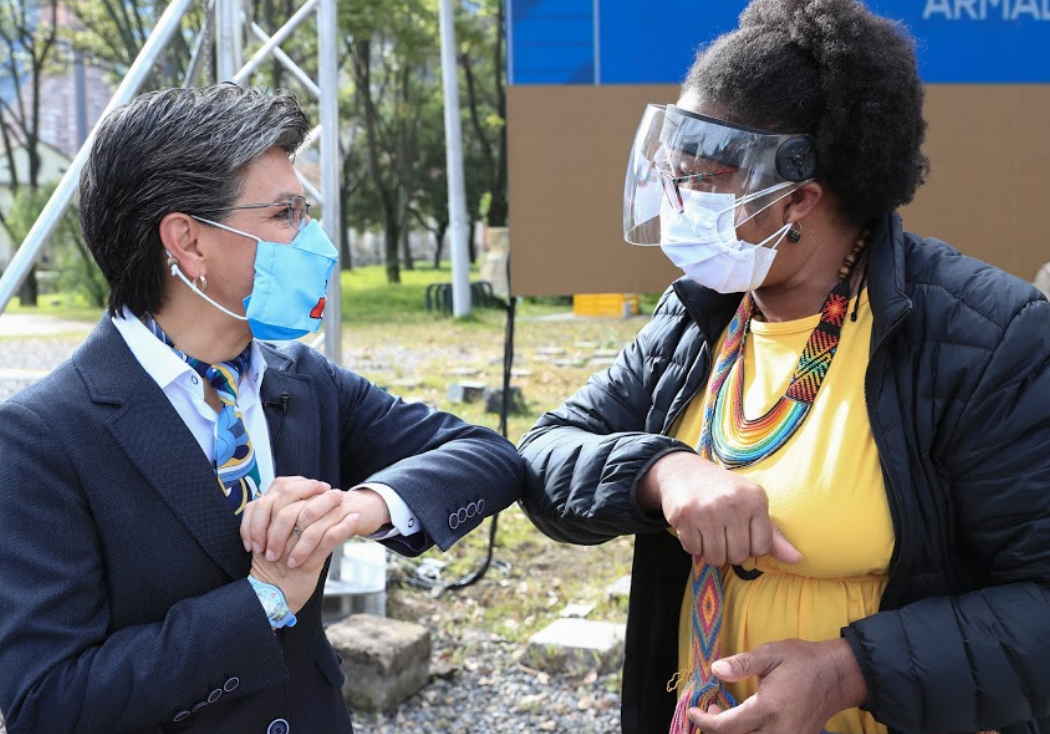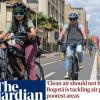In the quarterly report presented to the United Nations Security Council, the verification mission made special mention to the effort that Mayor Claudia Lopez and other local mayors have made to achieve the implementation of the final agreement for the end of the armed conflict and the construction of a stable and lasting peace of 2016.
According to the document, the leadership that territorial entities have assumed in the process of reincorporation of ex-combatants in spaces such as Bogotá, Tolima, Magdalena, Risaralda and Antioquia, has been an example of the response to the challenges of the post-conflict.
Additionally, Bogotá´s District Development Plan: A New Social and Environmental Contract 2020-2024 proposes a fundamental roadmap regarding the creation of differential programs for the construction of peace. "The recently approved Bogota Development Plan includes the creation of a district committee on reincorporation, PDET and reconciliation, whose only purpose is to promote the implementation of the Final Agreement in the capital," the report states.
The Bogotá-Region PDETs (Development Program with a Territorial Approach) are a participatory planning instrument arising from the Peace Agreement with the FARC. With them, the agreement sought to create a local-level response through the creation of a 10-year plan that responds to the needs and capacities of its inhabitants and its territory.
The Bogotá Development Plan established that two Bogotá-Region PDETs would be implemented in the capital: one urban on the southwestern border with Soacha in the localidades (Bogota´s unit for urban division) of Bosa and Ciudad Bolívar; and another rural one, in the town of Sumapaz, where the world's largest páramo (wetland) is located and the source of fresh water to 14 million Colombians. This localidades have historically suffered exclusion, social inequality and the consequences of the armed conflict.
“The express mention that the UN makes of the launching of the Bogotá-Region PDETs encourages us to continue working to achieve Bogotá as the epicenter of peace and reconciliation; to continue believing in that Yes that we gave to the Peace Agreement 4 years ago at the polls and to our main bet: to reduce the inequality gaps between the countryside and the city, because we are convinced that the best defense of the Peace Agreement is to comply with it integrally and we will do them with the Bogotá Region PDETs and with the territorial approach of the Comprehensive System of Justice, Truth, Reparation and Non-Repetition ”, said the high counselor for Victims' Rights, Peace and Reconciliation, Vladimir Rodríguez Valencia.
While the Bogotá-Region PDETs are being carried out, the capital is committed to the comprehensive implementation of the Agreement territorializing the System of Truth, Justice, Reparation and Guarantees of Non-Repetition. To this end, worktables have been carried out with the Special Jurisdiction for Peace, the Truth Commission, the Search Unit for People Considered as Disappeared and the National Council for Reincorporation, as well as with the Transitional Command of the Military Forces. A bet for scenarios of construction of historical memory, of materialization of the sanctions typical of transitional justice, the appropriation of truth and culture for reconciliation and early acts of recognition of responsibilities.






